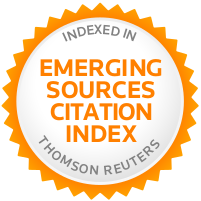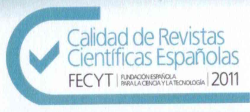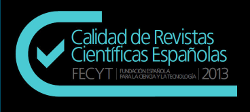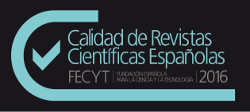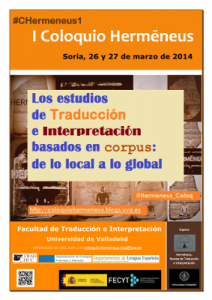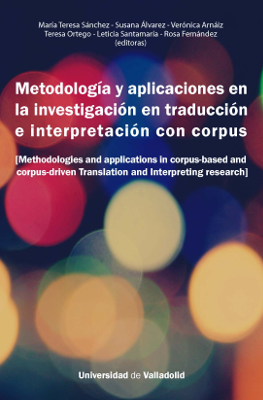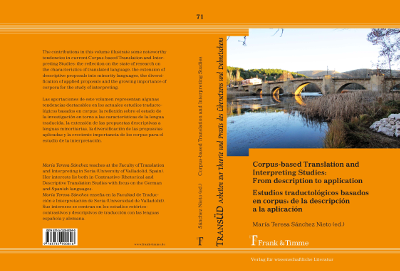DISBABELIA – Hermēneus Collection of Obscure Translations
Hermēneus will publish, as a complementary activity to the periodical edition of articles, reviews and brief translations, a collection of translations under the generic name of “Disbabelia. Hermēneus Collection of Obscure Translations”.
Initially, the translations included in this series will be of any literary genre. Treatises or works dealing with other humanistic or cultural genres may also be considered for publication.
The source languages may include any world language, present or past. The primary target language will be Spanish. The other languages taught at the Department of Translation and Interpreting of Soria – French, English, German and Italian – may also be given consideration as target languages.
In this project, “obscure translations” are, above all, defined as the translation of minority, exotic, dead or artificial languages that are unknown or relatively unfamiliar, that have not been translated or that have been rarely translated. Translations of authors whose works have not been translated, or rarely so, although such authors have written in a major language, are also solicited.
The express aim of this collection is to complement or supplement a wide range of authors, works and languages of great cultural and linguistic interest but which are not economically feasible for commercial publishers. This philosophy presupposes certain risks, but it also implies the desire to go where others cannot and, perhaps, to achieve that goal, but it also entails the responsibility of keeping in mind the noble mission of translation: facilitating contact between cultures and human societies separated by languages in order that they may become acquainted with each other. For us, the greater the divide or unfamiliarity separating human beings, the greater their interest.
Disbabelia invokes the myth of the Tower of Babel, so associated with the practical birth of the need for translation and interpreting, but in a contrary sense. We do not believe that the division of languages is a curse but rather an inalienable human patrimony to be carefully protected.
This project will be sponsored by the University Press of the University of Valladolid, in collaboration with the Department of Translation and Interpreting of Valladolid at Soria.
The series will be biannual, although, if special circumstances warrant, the publication of a special issue may be considered.
Those interested in publishing a translation in this collection should present the following initial documentation:
- An initial project or summary that includes a description of the final project, including length, genre, etc., and which delineates the reasons for its publication in a collection of the characteristics and objectives such as Disbabelia. Furthermore, information concerning the author and the source language and culture should be provided, if necessary.
- A brief curriculum vitae emphasizing personal experience in the field of translation or philological, linguistic or literary study.
Correspondence should be sent to the following:
| |
|
|
| |
Juan Miguel Zarandona Fernández
(Director de la Revista Hermēneus)
Facultad de Traducción e Interpretación
Campus Universitario Duques de Soria s/n
42004 Soria (Spain)
Tel: + 34 975 129 174 / +34 975 129 100
Fax: + 34 975 129 101
E-mail: juanmiguel.zarandona@uva.es / hermeneus.trad@uva.es
|
|
| |
|
|
|
Translations should be of high literary quality. Revision by one or more editors will be essential.
Anonymity will be guaranteed during the entire acceptance process of the project, study and correction of the translation, until the definite acceptance of a work for publication in Disbabelia is approved. Acceptance will be confirmed in writing.
Due to the probable presence of cultural differences that can greatly hinder the comprehension of the translated texts, translators are encouraged to provide any explanatory notes they feel are necessary, as well as general introductions to the work, the author and his/her artistic career, and to the source culture.
Disbabelia has contemplated since its founding close collaboration with all the Departments of Philology of the University of Valladolid.
It also seeks collaboration and co-publishing with organizations, such as embassies, ministries, foundations, cultural institutes, businesses, etc., interested in this project.

